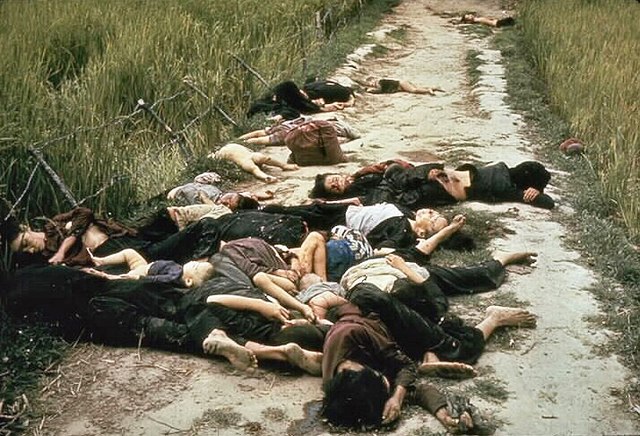
Some political observers and historians feel that authoritarianism, like a phoenix rising from the ashes, is making a comeback in the United States and in Europe after being discredited and (in part) defeated during World War II. The questions are always: how does that happen? Is it the strength of personalities, or ideologies that become unstoppable? Where did it start and can’t we be comforted by all the powerful Kings and conquerors throughout history?
In his must-read, can’t-put-it-down book Kings, Conquerors, Psychopaths: From Alexander to Hitler to the Corporation Joseph N. Abraham provides a fresh take on these and other questions, backing it up with solid (often shocking) research that concludes we can’t just blame authoritarians but those who follow, obey, and emulate them. It is virtually in humanity’s genetics. He convincingly makes (and documents) the case that despite often romantic images, kings and conquerors were vicious criminals — and the fact the they were psychopaths, narcissists, and sadists became whitewashed, almost in a form of mass hypnosis. Much of what they did and actually were like somehow vanished from cultural perceptions over time.
Abraham is an emergency medicine physician who has spent years seriously thinking about and meticulously documenting the genesis of how humanity nurtured and submitted to inhumanity (those disobeying were murdered and those conquerors defated were often hideously butchered or sold into slavery) during mankind’s 10,000 year path. Kings, conquerors, psychopaths, narcissists were (and are) masters of manipulation. And, he argues, corporations often fit the same mold. He opens with the My Lai massacre. He not only raises these issues but fleshes them out with shocking facts about the degree of murder, sadism, gore, and lack of empathy. The book is written in a lively, thoroughly researched and well-thought out style (it is not written like a blog post, nor does it read like someone who is vomiting up cliches and generalizations after watching their favorite political entertainment media polarizer). The term “must-read” has been soooooo overused. But Kings, Conquerors, Psychopaths is a must read..must own..and, most of all, a must ponder.
The Moderate Voice interviewed Abraham. Here’s the first of three parts.
TMV: If you had to summarize the key main themes in your book what would they be?
JA: For much of my life I have been fascinated by human illogic; why do we insist things are true when we cannot know that they are true, or worse, when we cannot see that they are obviously false? We are all of us prey to this, it is why we are warned not to discuss religion or politics. On those topics, almost everyone is nuts.
This book is an attempt to answer that problem of human illogic. The first theme in the book, and key to those that follow, is that life has been horrific throughout 10,000 years of civilization. (Actually, it’s been horrific from the beginning of life on the planet, and I also go into that.) The overwhelming majority of each generation died early deaths, often from privation and disease, but also from war, raiding, torture, and execution.
Which helps answer the question about illogic, and introduces the second theme: our irrational beliefs come from an attempt to survive the horror and hunger of civilization under the king. If our ancestors disagreed with the king, they were ruined, and quite probably executed. After ten millennia of this lethal force, our forbears who survived learned to not only agree with the king, but to *believe* him.
That introduces the third theme, an explanation for the person who blindly attaches himself to a political strongman, aka ‘the authoritarian personality.’ Again, the best path to survival in the past was to give allegiance to the toughest gangster around, which was the king.
My last major point is that the modern corporation has replaced the king, and like the king, the corporation brutally exploits us. But we cannot see the injustice of the corporation any more than our ancestors could see that the injustice of the king. Both of them abuse us and trade our lives for profit.
2. How many potential dictators are around us today and where? I need to seriously note that humankind’s thesis of your book is evident to those who’ve lived in condos where sometimes people get on the board and become drunk-with-power dictators.
JA: I suppose it depends on how we define ‘potential’. There are many psychopaths, but to become a dictator requires several other severe dysfunctions, including a raging narcissism. But it also requires other abilities, including intelligence; a talent for political and social strategy; a fair amount of charisma, including the ability to speak well, and possibly to write well, in order to motivate others to follow; a proficiency for managing large organizations; and a fair amount of focus and self-discipline.
The person with all of these strengths and dysfunctions is fairly rare. So all around us are many people would love to be dictator, but most of them simply compete over power that will be delegated to them from someone else. The ability and willingness to grab power for one’s self — here I think of Napoléon snatching the crown from the Pope and putting it on his head — is very rare. (Actually, Napoléon put the crown on Joséphine’s head, because he had entered the cathedral wearing a Roman-inspired crown of golden laurel leaves.) The dictator grabs power for himself and by himself, and defers to no one.
TMV: A lot of your findings are based on meticulous research suggests that today’s civilization and society is built on a foundation of a kind of mass hypnosis, selective amnesia of atrocities and an ever lingering threat of violence to the disobedient and that history as most people are taught it being quite selective. If you boil it down it seems globally we are what we are because of flawed assumptions being perpetuated from generation to generation. If you agree this is accurate, how do you think we’re trending so far in the 21st century?
JA: I worry.
I think that one of the reasons that people spoil to go to war, is that the last generation to see war disappears, or perhaps they remain silent. So knowledge of the horror of bloodshed fades, wisdom wanes. We collectively ‘forget’ how fragile peace and progress are. I have been reading Menand’s The Metaphysical Club, and I am struck by how American pragmatism emerges in large part from the ideological disgust of Oliver Wendell Holmes, Jr., after he had experienced the senseless carnage of the U.S. Civil War.
Today, those of us in the advanced countries live in this microtome-thin slice of history, where we have never experienced privation and horror. All we know is the stability of the modern world; we assume that this is normal, and that it is the default condition for civilization. We do not realize that our luxury for the past 75 years is unprecedented in the history of humanity, and even in the history of life.
And so we are becoming reckless. Right-wing strongmen are emerging around the world urging authoritarian attitudes. In response, the liberal reactions are most illiberal: those who claim they want peace and reconciliation become as bellicose as those they oppose.
In all aspects of life, it is very easy to destroy, but very, very difficult to build. And right now, too many people are hot to destroy.

The Reality of Conquest, Exposed: the U.S. in Viet Nam, the My Lai Massacre. Note the infants and children among the bodies.
The book:
On Kindle:
Joe Gandelman is a former fulltime journalist who freelanced in India, Spain, Bangladesh and Cypress writing for publications such as the Christian Science Monitor and Newsweek. He also did radio reports from Madrid for NPR’s All Things Considered. He has worked on two U.S. newspapers and quit the news biz in 1990 to go into entertainment. He also has written for The Week and several online publications, did a column for Cagle Cartoons Syndicate and has appeared on CNN.
















